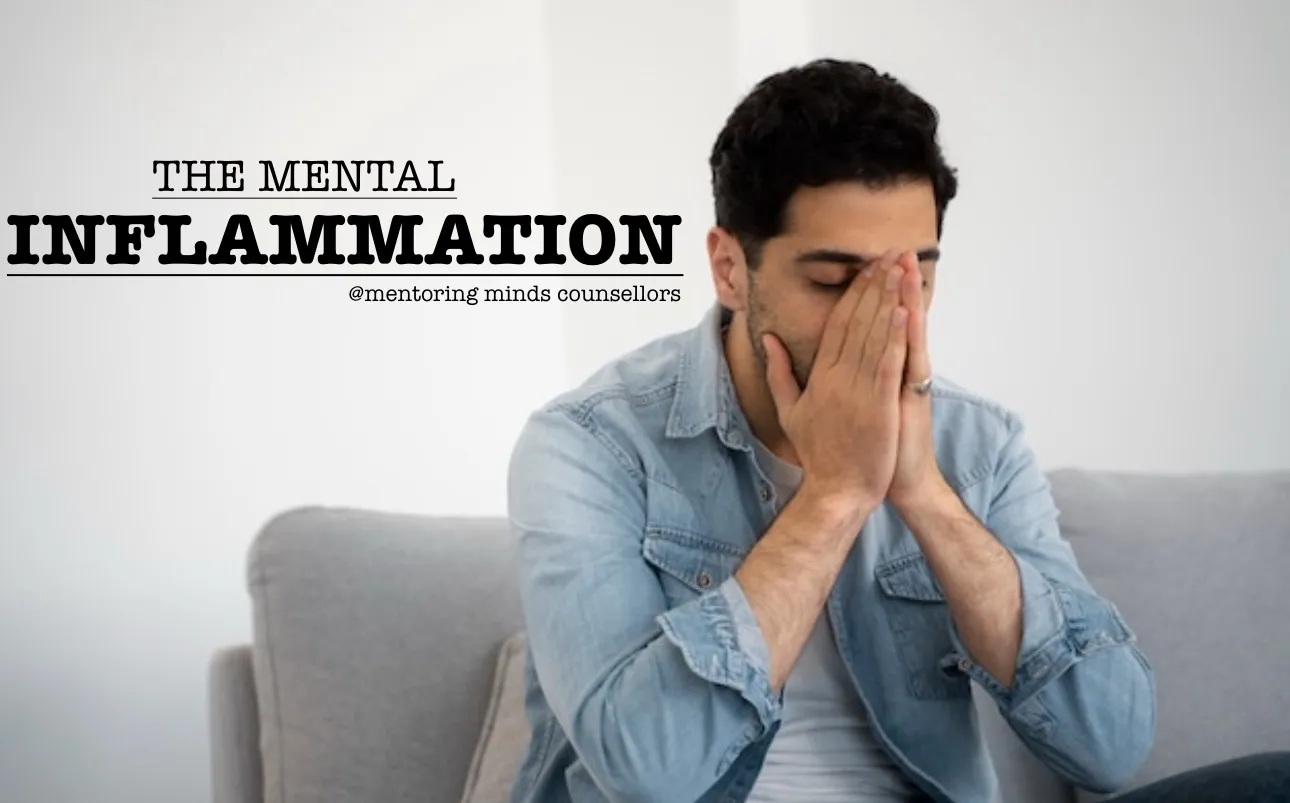Have you ever felt like your mind was just sore? Not physically, but emotionally and mentally? Like your thoughts are heavier, your reactions are sharper, and everything feels more overwhelming than it should? That might be what experts are now calling mental inflammation.
So, What Is Mental Inflammation?
Just like physical inflammation is your body’s way of responding to injury or infection, mental inflammation is your brain’s response to emotional and psychological stress. It’s not a visible swelling, but a subtle, internal fire that can affect how you think, feel, and function.
Over time, this low-grade inflammation can disrupt your mood, memory, sleep, and overall mental clarity.
What Causes It?
- Chronic stress: Long-term stress keeps your body in fight-or-flight mode, which floods your brain with stress hormones like cortisol.
- Lack of sleep: Lack of quality sleep disrupts brain detoxification and increases neuroinflammation.
- Unprocessed Life trauma: Emotional wounds that haven’t been addressed can keep the nervous system on high alert.
- Negative thinking loops: Repeated cycles of worry, fear, guilt, or shame can act like toxins to your mental health.
- Loneliness: Human beings are wired for connection. When we feel isolated, our brain can go into a state of threat, increasing stress and inflammation.
How Does It Feel?
It does feel like:
- Constant brain fog or forgetfulness
- Feeling emotionally drained for no clear reason
- Overreacting to small issues
- Frequent mood swings
- Struggling to focus or stay motivated
- A sense of inner agitation or restlessness
It’s like your mind is tired, sore, and easily triggered.
How can one slowly heal Mental Inflammation?
- Understand Your Stress
Give your nervous system time to rest. This could be deep breathing, meditation, gentle walks in nature, or even doing nothing at all. Mental rest is real and necessary. - Improving Sleep Quality
Sleep is when your brain repairs itself. Try to maintain a regular sleep routine, avoid screens before bed, and create a calming wind-down ritual. - Process Your Emotions
Journaling, talking to a therapist, or simply acknowledging your feelings helps prevent emotional buildup, which can lead to inflammation. - Feel Good Chemicals
Exercise doesn’t just help physically it boosts feel-good chemicals in the brain and helps reduce inflammation.
Final Thoughts
We at Mentoring Minds Counsellors understand that Mental inflammation doesn’t mean something is wrong with you it’s your mind asking for care. It’s a signal that you may need to slow down, nourish your emotional world, and tend to the parts of you that feel overwhelmed or neglected.
In a world that often glorifies hustle, numbness, and emotional suppression, choosing rest, connection, and compassion is a radical and healing act.


Leave a Comment